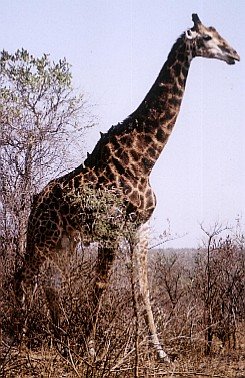Thursday, May 2, 2013
Elephant tusk poaching
It is like Africa is selling her soul. Perhaps even in my lifetime the big five in the wild would have shrunken to the big three and tourists will have to visit continents who value them, like Australia, if they want to see the other big two roaming free.
In the picture above, every two tusks represent a dead animal. Many who have been killed in a cruel way. Many mother died leaving their young behind to fend for themselves.
http://africananimals.blogspot.com/2013/04/on-safari-by-armand-dennis-1963-pp-306.html
Above photograph from the Cape Times
Thursday, June 17, 2010
Tuesday, June 15, 2010
Sad World Cup News
A newspaper front page news article, glorifying someone who made a vuvuzela from a kudu horn highlights the latest killing of a rhino at the Kruger National Park.
Even if the rhino horn was not going to be used as vuvuzela, the poaching of animals for their parts is still sad.
Africans are sick and they regard money as more important than the few animals left in the wild. It seems that they will only stop when the last animal is dead.
Saturday, March 6, 2010
Doggy poop in plastic
During our early morning strolls, when the dog takes us for a walk, we used to cover the doggy poop with sand, whenever possible.
Lately we are joining the recommendation from the municipality and we are using the old bread plastic wrappers to collect the dog poop and then place it into a bin, (usually at the park).
Some people just toss their doggy-doodle-bag into the long grass to be exposed when the lawn is cut.
My concern is: "Are we adding to carbon footprint by bagging the dog poop.
I have the following two reasons for saying this:
1. Doggy-doodle-filled bags are not recyclable.
2. Do we know the relationship between the organisms that decompose animal faeses in the wild, and the growth and distribution of fynbos?
In the early days our open spaces crawled with animal life.
Now that lawn mowing is commonplace, even in many of our reserves, we are drastically reducing the ability for animals to coexist on our open spaces. The result of this is less animal faeces.
Whenever you remove one aspect of nature, you remove a whole life cycle of insects. Do we fully understand the relationship of the insects that breaks down the animal faeces to the group of insects that helps with the fertilization and pollination of the plants in the wild?
Should there be a suggestion that if your doggy poop on open space, it is better to just leave it there and let nature do it's thing?
Sunday, February 1, 2009
African Safari 2007

Photograph by Eddie Arpasella
Implement a personal ban on all use of ivory products.
Boycott retailers selling ivory products and other products that harm. Let them know why you ban them.
Saturday, December 6, 2008
Good beach weather - Stress for breeding Oystercatchers
XXXXbaai, Cape, 06 December 2008
It is a lovely sunny hot day in Cape Town today.
We spotted two pairs of Oystercatchers and three pairs of White-fronted Plovers on one of the beaches between Blouberg- and Melkbos Strand.
The oystrcatchers are endangered but not protected in our area. We saw a man with two large dogs on a lead, but they were let loose once they reached the beach. I do not have a problem with a dog roaming free, but many people do not realize the potential harm these dogs cause when they chase endangered animals, either breeding or with vulnerable chicks. Crows and other predators are often nearby waiting for an opportunity to swoop down on unprotected nestlings.
I have, on more than one occasion, watched a predator bird circling around someone walking through a protected nature area. The birds have learned that people disturb birds so that they leave their nests and hatchlings unprotected.
Saturday, November 15, 2008
Sensitive workers are needed in conservation areas

Beach cleanup, along nature conservation areas, should be done under the supervision of our conservation department; and not by the parks department workers.
Contract workers are often employed to work in sensitive areas with no training regarding conservation. They are expected to be sensitive to the plants and animals, in conservation areas, and often left to their own devices.
Last year beach cleanup teams were operating while the Oystercatchers were rearing their chicks. The plovers and other beach dwellers were also not considered.
Luckily, these people were quite lazy and did little other than sunbathing.
The school children that were sent to collect rubbish along the beach during breeding season did more harm. They trampled over the sensitive area in groups.
Seaweed, that hosts a multitude of little animals that form part of the beach birds' diet, is being removed to tidy the beaches.
The preservation of indigenous animals are as important as plants. Their numbers are decreasing at an alarming rate.
We should consider that Plovers breed in the same area where the sea spews out the rubbish.
We should not wait until they hit the endangered list before we take action. Prevention is ever better than cure.











